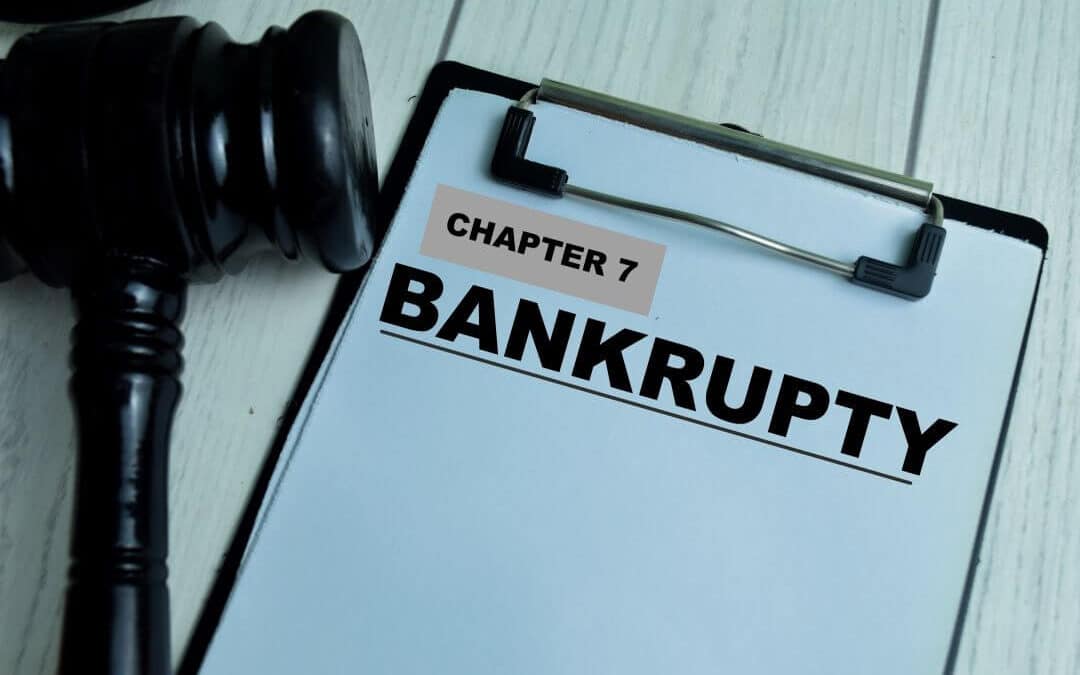Managing a small business can be challenging, and sometimes, it can lead to financial problems. If you experience such a situation, filing for Chapter 7 bankruptcy may be the ideal solution to ease your financial burden. This article will provide an in-depth look at Chapter 7 bankruptcy for small business owners, including the process, advantages, and risks.
Understanding Chapter 7 Bankruptcy
In Chapter 7 bankruptcy, also known as ‘liquidation bankruptcy’, the bankruptcy court a bankruptcy appoints a trustee to distribute the proceeds from selling the debtor’s non-exempt assets to creditors. Afterward, most debts are discharged, offering the debtor a fresh start. Although Chapter 7 is commonly associated with personal bankruptcy, small business owners can take advantage of it, too.
However, the eligibility and implications of filing for Chapter 7 bankruptcy vary depending on the type of business, such as sole proprietorship, partnership, corporation, or limited liability company (LLC).
Sole Proprietors and Chapter 7 Bankruptcy
As a sole proprietor, you and your business are one entity. Therefore, filing for Chapter 7 bankruptcy allows you to discharge both business and personal debts, including credit card balances, medical bills, past-due lease payments, utility bills, and personal loans.
Moreover, sole proprietors are not subject to the means test, which is required for individuals filing for bankruptcy to determine their eligibility based on their income.
Additionally, bankruptcy exemptions can be used to protect personal and business assets. These exemptions are legal provisions that allow you to keep certain property despite going through bankruptcy.
Partnerships and Chapter 7 Bankruptcy
Partnerships can also file for Chapter 7 business bankruptcy, but the partnership itself will not receive a debt discharge. Instead, the Chapter 7 bankruptcy process focuses on liquidating the partnership’s assets to settle all creditors.
In general partnerships, where all partners are personally liable for the business debt, filing for Chapter 7 bankruptcy can have serious consequences. The trustee or creditors might pursue each partner’s personal assets to pay off all outstanding obligations. Also, many partnership agreements contain clauses that dissolve the business if one partner files for bankruptcy.
Therefore, it may be more beneficial for each partner to file for personal Chapter 7 bankruptcy after closing the business.
Corporations and Chapter 7 Bankruptcy
Corporations can file for Chapter 7 bankruptcy to begin an orderly liquidation of their assets. However, corporations, like partnerships, do not receive a debt discharge through Chapter 7 bankruptcy. Instead, the primary advantage of Chapter 7 for corporations is the simplified process of liquidating assets and distributing funds to creditors with the help of a bankruptcy trustee.
Furthermore, shareholders who have personally guaranteed corporate debts will still be held liable for those debts unless they file for personal Chapter 7 bankruptcy.
Limited Liability Companies (LLCs) and Chapter 7 Bankruptcy
LLCs act similarly to corporations when it comes to bankruptcy and debt liability. Filing for Chapter 7 bankruptcy as an LLC allows for the liquidation of the business while discharging personal liability for business debts through personal bankruptcy.
Deciding on the Best Bankruptcy Option
When deciding the best bankruptcy option for your small business, you must consider various factors, such as the structure of your business, the type of debt, and your long-term goals. While Chapter 7 bankruptcy can bring relief from financial obligations, it is important to consider the risks associated with it.
Before taking any steps, consulting with a bankruptcy lawyer specializing in small business cases is recommended. A knowledgeable attorney can evaluate your case, guide you through the bankruptcy process, and help you make informed decisions to protect your assets and achieve the best possible outcome.
Brock & Stout’s attorneys have over 25 years of experience helping clients navigate the bankruptcy process. Contact us for a free evaluation of your financial situation to see if we can help you with your financial trouble.

